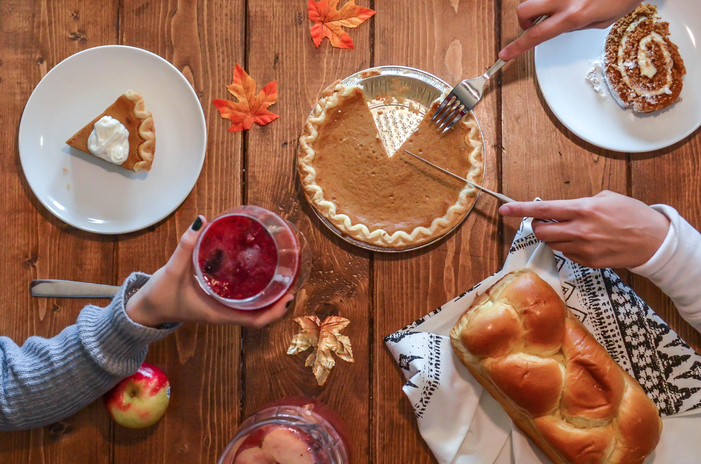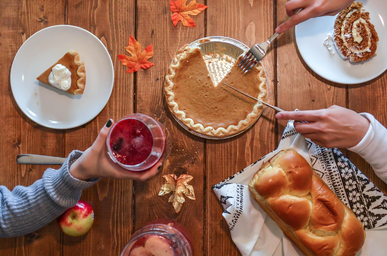Make smaller portions
While we all know the joy that comes in the Thanksgiving leftover sandwich, there’s no reason to make so much food that you’ll inevitably have to throw some away. Instead of going for quantity when you’re cooking, try to really consider how many people you’re feeding. If it’s a family of three, do you need to make a full buffet? Can you make anything in smaller portions? Making only as much as you need can help reduce your food waste. If you do end up with more food on your hands than you know what to do with, try to repurpose the leftovers instead of throwing them away. Whether you freeze them or give them away, have a plan in mind so you don’t end up having to throw away spoiled food.
Use scraps for compost or to make stock
Another way to reduce food waste is to figure out how you can use every part of what you’re cooking with. Instead of tossing out the potato peels and carrot tops, add them to a compost pile — even if you don’t have your own, many communities have compost piles that are open to the public. Another option is to use those scraps, as well as the carcass of the turkey, to form a stock. This is a good option to make your food last, reduce the amount of waste, and also so you don’t have to buy stock from a store that would come in a paper or plastic package.
Reduce the amount of meat on your plate
There’s nothing that says “Thanksgiving” more than a turkey, but if you’re looking to reduce your carbon footprint, meat isn’t always the best way to go. While poultry is a huge improvement over beef, the meat industry is still causing harm. Research from Our World in Data shows that choosing fish or something plant-based as the main meal is a less traditional option, but it could mean a more guilt-free holiday — and let’s be honest, everyone knows the sides are the best part of Thanksgiving anyway.
Reduce plastic waste when shopping
Speaking of packaging in stores, try to avoid getting things that come wrapped in single-use plastic or unnecessary packaging. Using a tote instead of plastic produce bags or shopping at a container store is a good way to reduce the amount of plastic you use. Better yet, look for a farmers’ market that’s open late in the season to buy locally-sourced produce instead of a large grocery store.
Skip the fast fashion on Black Friday
If you’re someone who’s itching for the post-holiday deals more than the holiday itself, you can still keep sustainability in mind. Overconsumption of cheap, unethically produced items is one of the biggest issues in sustainability. Black Friday is a good opportunity to invest in good quality clothes or other items that will last a long time, rather than ending up in a landfill in five years. Instead of mindlessly shopping and grabbing whatever is the least expensive, try to research what you can get that is good quality and was ethically made.


